Women in divided homes now find Solace in SEVOTA’s Iwacu ni Amahoro program

Penina lives in a hushed life in Kamonyi district, she carries a smiley face but deep inside her lies the truth of the daunting past life, one that she has pondered over a long period in search of peace in her heart to accept it the way it is.
She is the only person who survived from her family during the 1994 genocide against Tutsis but her relatives despise her- she made a grave mistake which they felt was causing more pain. Penina who is married to a man they didnt have same experiences in the 1994 Genocide against Tutsis,was hated by her relatives.
I was hated by my relatives and relatives of my husband, they said I was not supposed to marry in that family,this added to the trauma I had already,” she said.
I was left alone, no one to turn to and with the trauma I carried in my heart-losing my family and being raped, I regretted the reason why I survived, the sobbing Penina said.
Like Penina, some women who survived Genocide have lived a double haunting life, lost their families, were raped or tortured and are rejected in the aftermath of the 1994 Genocide against Tutsis.
“Most of these women have not been identified so that they can be
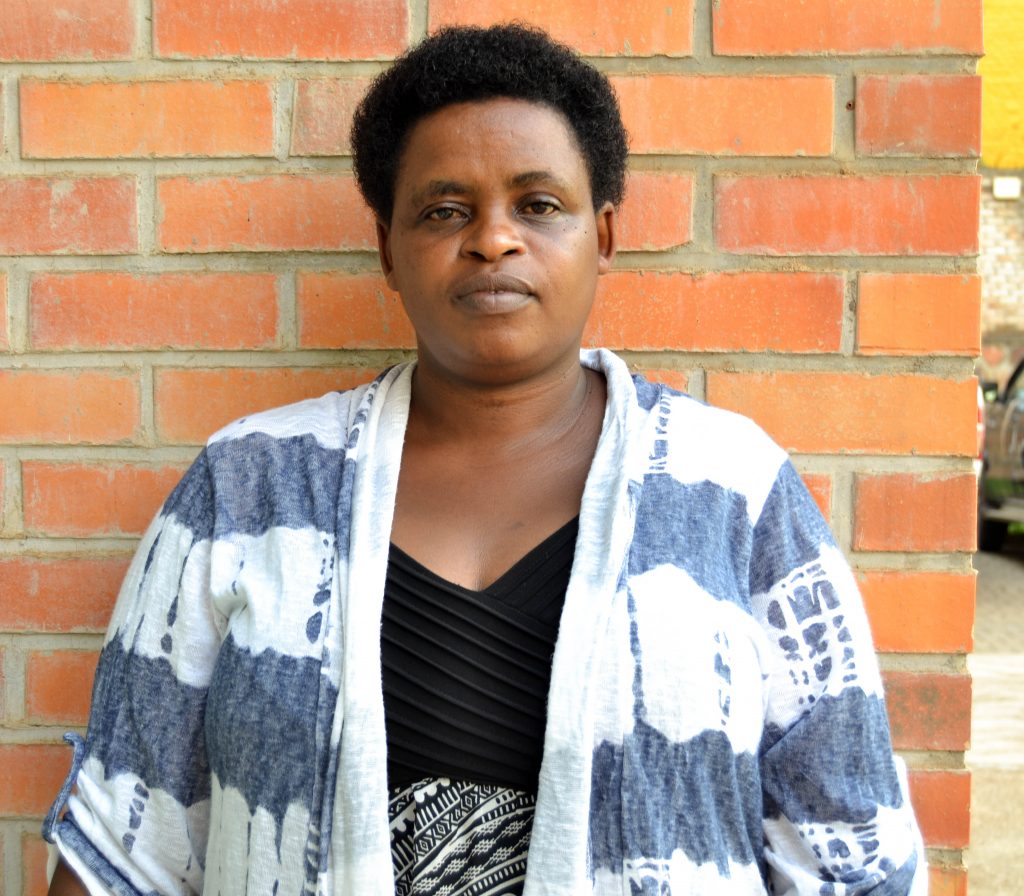
supported, they were suffering in silence,”said Marie Rose Muteteri, the head of Iwacu ni Amahoro program initiated by SEVOTA.
SEVOTA is the Solidarité pour l’Épanouissement des Veuves et des Orphelinsvisant le Travail et l’Auto-promotion (Solidarity for the Development of Widows and Orphans to Promote Self-Sufficiency and Livelihoods.
SEVOTA- aims to provide moral and organizational support to its beneficiaries–who include women survivors of violence, children born as a result of violence, and vulnerable households, including those of widows and orphans.
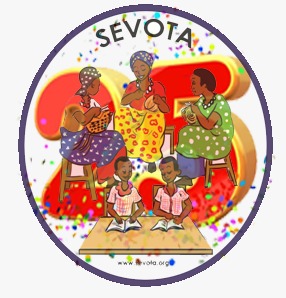
Muteteri says that SEVOTA started a program Iwacu ni mahoro(peace at home) to rebuild such women and their families, promote unity, peace and reconciliation among these families.
“The program which is in line with the organisation’s objective focuses at building broken families as a result of Genocide and help these women to heal from trauma,” she said.
The project is funded by Kvinna till Kvinna, Swedish organisation that promotes women’s rights in more than 20 war- and conflict-affected countries. Kvinna till Kvinna focuses on four key issues: gender-based violence, women’s equal participation, economic empowerment and women, peace and security.
She says that SEVOTA identified these women, organised them in groups and these groups through SEVOTA help members to belong to a family and also have a platform to allow them pour out the distress they have kept in their hearts for a long time.
“Whenever I would go to look for support like other genocide survivors, they would tell me that am well off because I married a man who supports himself,” said Gisele from Ngororero district who is currently a member
one of the groups supported by Kvinna till Kvinna.
To identify these women, Muteteri says a research was carried out to identify where over 100 members have already been identified he program that started in December 2018 operates in the districts of Kamonyi and Ngororero with a plan to extend to other districts if more support is available.
The program currently has 200 beneficiaries in 19 groups in two districts. In March 2019, a research was conducted to point out the causes of the conflicts in these families. The program is also plans to train group leaders in leadership.
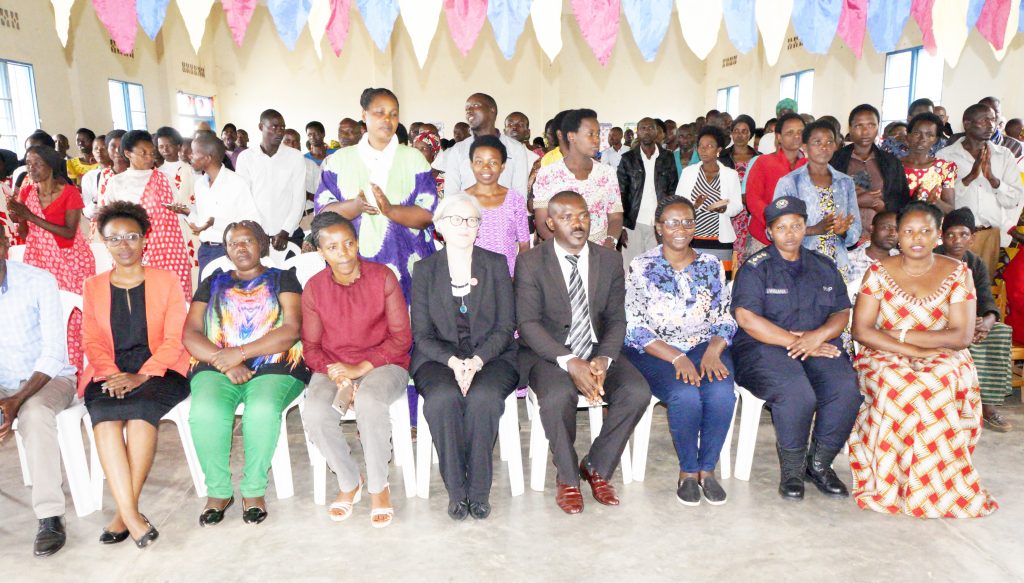
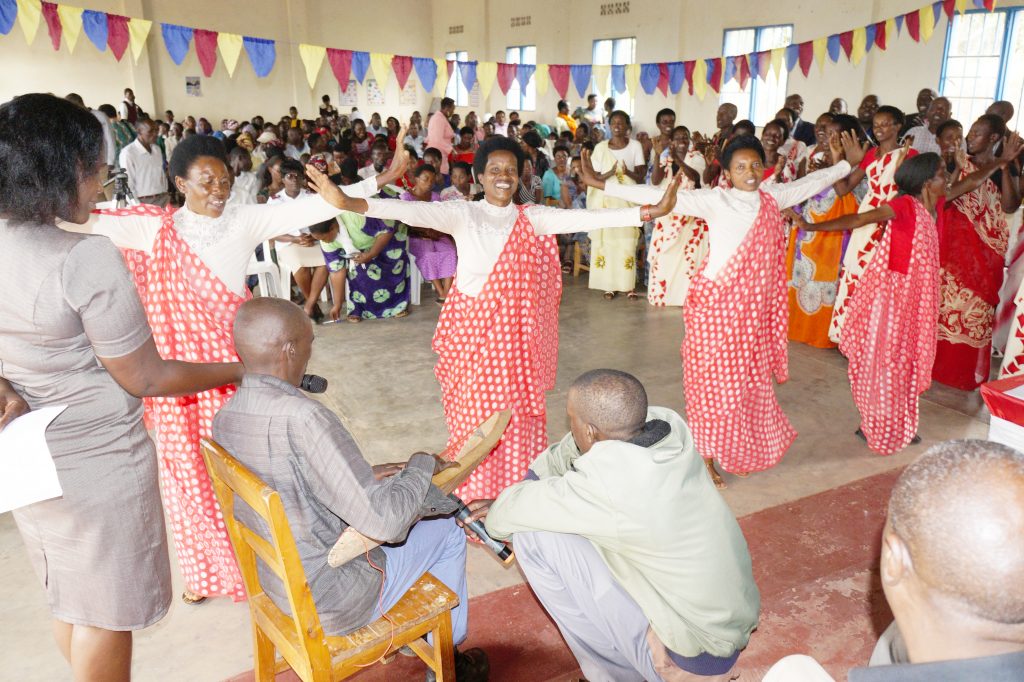
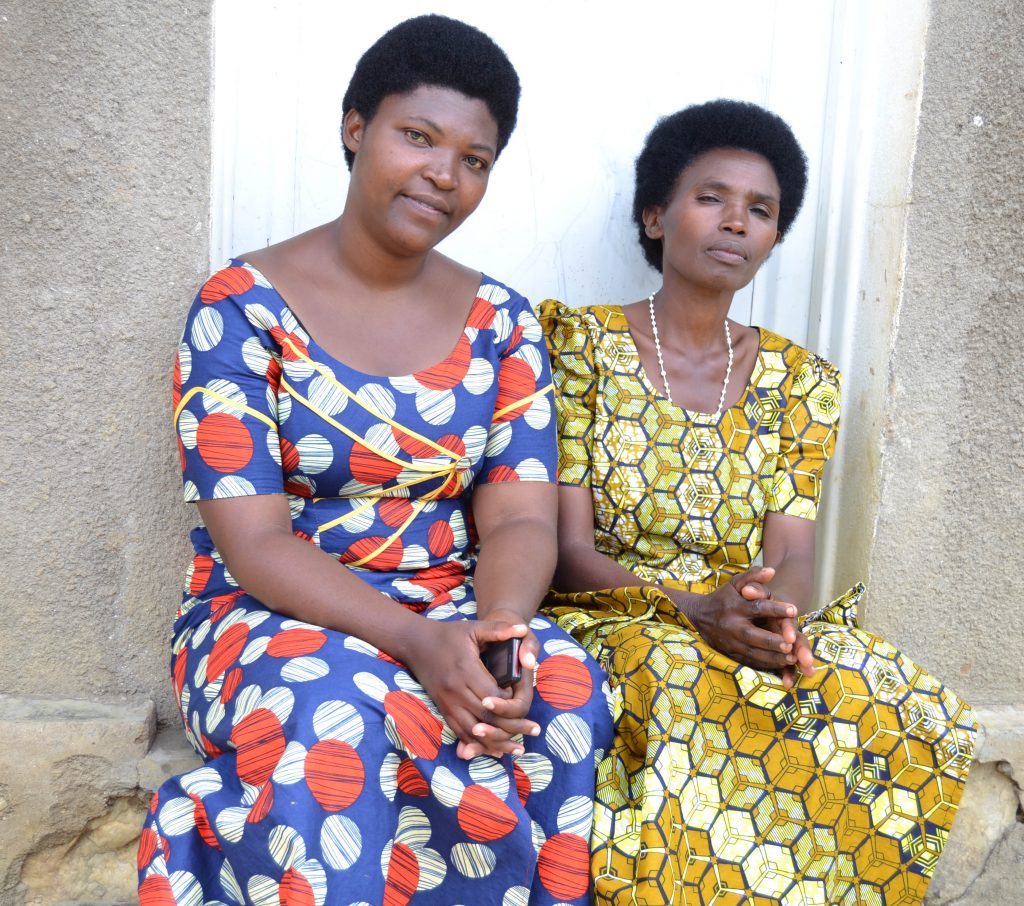
Nyirahabufite Gisele and Mukakamari Donata from Ngororero District

Photo By Eric Nzabirinda, Light Magazine

